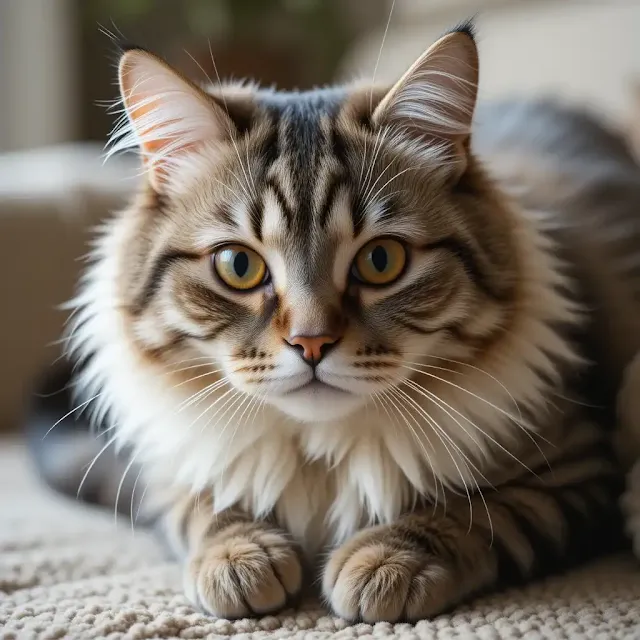Ways to Improve Your Senior Cat’s Quality of Life

As our beloved cats enter their senior years, they require extra care and attention to maintain their health, comfort, and happiness. Aging brings inevitable changes in mobility, digestion, and overall well-being, making it essential to adjust their care routine accordingly. By making small yet meaningful changes, you can ensure your feline friend enjoys their golden years to the fullest. Here’s how to improve your senior cat’s quality of life and show them the love they deserve.
1. Provide a Nutritionally Balanced Diet
A well-balanced diet is crucial for keeping your senior cat healthy and energetic. As cats age, their metabolism slows, making it necessary to adjust their food intake. Look for high-quality senior cat food rich in protein to maintain muscle mass, with added supplements like glucosamine for joint support and omega-3 fatty acids for heart and kidney health. Avoid foods with excessive fillers or artificial additives, as they can contribute to weight gain and digestive issues.Hydration is equally important many senior cats are prone to kidney disease and urinary problems. Encourage water intake by offering a fresh water source, adding wet food to their diet, or using a cat water fountain to make drinking more appealing.
2. Schedule Regular Veterinary Visits
Routine checkups become increasingly important as cats age. Bi-annual vet visits help catch common senior cat ailments early, such as arthritis, diabetes, dental disease, and kidney problems. Blood work, dental exams, and overall health assessments allow for early intervention, which can significantly improve your cat’s longevity and comfort.3. Keep Your Senior Cat Active
While older cats tend to slow down, regular gentle exercise is essential to keep their joints flexible and maintain a healthy weight. Encourage movement through low-impact play sessions using soft toys or treat-dispensing puzzles. Avoid strenuous activities, and instead, focus on interactive games that keep their minds engaged without putting stress on their aging joints.4. Make Their Environment Senior-Friendly
Mobility issues can make it difficult for older cats to navigate their home as easily as before. Here’s how to create a senior-friendly environment:- Provide soft, orthopedic bedding to relieve pressure on aging joints.
- Offer ramps or pet stairs to make it easier for them to access their favorite spots.
- Keep litter boxes easily accessible with low-entry designs.
- Place food and water bowls in easily reachable locations.
- Keep their space warm and cozy, as older cats are more sensitive to temperature changes.
5. Address Cognitive and Emotional Needs
Senior cats can experience cognitive decline, which may lead to confusion, disorientation, or changes in behavior. You can support their mental well-being by:- Providing interactive toys and rotating them regularly.
- Using puzzle feeders to encourage problem-solving.
- Playing soft music or using pheromone diffusers to reduce anxiety.
- Maintaining a consistent routine to prevent stress and confusion.
6. Assist with Grooming and Hygiene
Older cats may have difficulty grooming themselves due to arthritis or dental issues. Regular brushing helps prevent matting, reduces shedding, and keeps their coat healthy. Pay special attention to their nails, as they may not wear down as quickly as they used to. Dental health is also crucial provide dental treats, cat-friendly toothbrushes, or schedule professional cleanings to prevent gum disease and tooth decay.7. Monitor for Changes in Health and Behavior
Subtle changes in your cat’s habits can indicate underlying health issues. Watch for signs like:- Increased thirst or urination (potential indicators of kidney disease or diabetes).
- Sudden weight loss or gain.
- Reduced appetite or difficulty eating.
- Reluctance to move or play.
- Excessive vocalization or unusual hiding behavior.
- Struggling to use the litter box.
If you notice any of these changes, consult your veterinarian promptly. Early detection can make a significant difference in treatment and quality of life.
8. Reduce Stress and Provide Extra Comfort
Older cats are more sensitive to changes in their environment. To minimize stress:- Maintain a predictable routine for feeding and playtime.
- Offer quiet spaces where they can relax undisturbed.
- Use calming pheromones or soft blankets to create a comforting atmosphere.
- Introduce any changes gradually, whether it’s a new pet, furniture arrangement, or travel plans.

